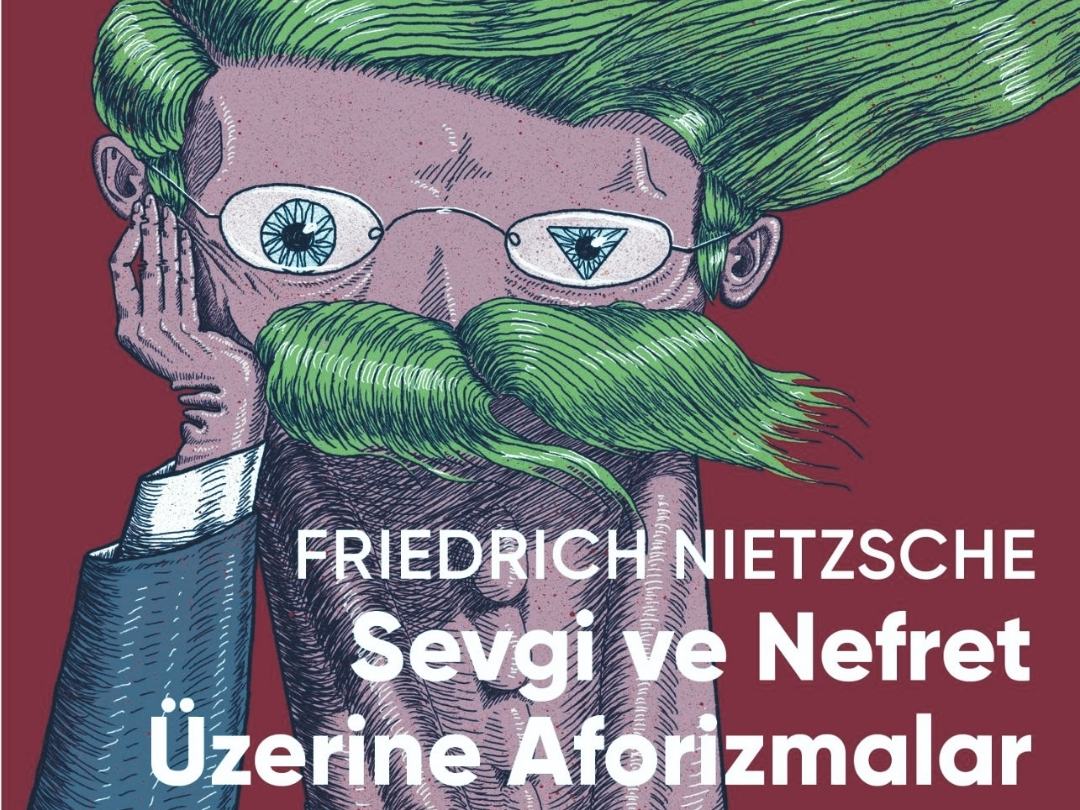The aphorisms of Nietzsche, the founder of the philosophy of life, which will relieve the confusion of emotions you cannot make sense of, and bring explanations that will make you marvel at the mysteries of human nature…
One can make promises about one’s actions, but not about one’s feelings, because they are involuntary. Whoever promises to love someone forever, or to hate him, or to be faithful to him, promises something beyond his power…
German philosopher Friedrich Nietzsche’s Sevgi ve Nefret Üzerine Aforizmalar (Aphorisms on Love and Hate), compiled from his Humanly, Very Humanly, published on the 100th anniversary of Voltaire’s death and dedicated to the great writer, is a collection of the philosopher’s reflections on love, hate, friendship, friendship, marriage, revenge, ambition, morality, justice, vanity, gratitude and goodwill – fundamental issues that humanity can never avoid pondering. Observing all the good and bad aspects of human nature, which is full of contradictions, from the same distance, Nietzsche shows that we can lighten the burden of life by thinking about what is human.
Book Title: Sevgi ve Nefret Üzerine Aforizmalar (Aphorisms on Love and Hate)
Author: Friedrich Nietzsche
Translation: Anıl Alacaoglu
Publisher: Can Publishing
Series: Classic
Genre: Thought
Page Count: 64
…
FRIEDRICH WILHELM NIETZSCHE was born in 1844 in Röcken in the Kingdom of Prussia. He started to learn Greek and Latin at the age of seven, and was introduced to classical music in this period. His special talent in music and language opened the doors of Schulpforta, one of the qualified Protestant boarding schools of the period, at the age of fourteen. After graduating from Schulpforta in 1864, Nietzsche began studying theology at the University of Bonn the same year. In 1869, he accepted an offer from the University of Basel in Switzerland to become a professor of classical philology. In 1872 he published his first book, The Birth of Tragedy. This was followed by studies on David Strauss and Richard Wagner. In 1878, Humanly, Very Humanly was published. In 1882 came the first part of The Jolly Science. In 1885 he published Thus Spoke Zarathustra in only forty copies and distributed it to close friends.
Beyond Good and Evil, On the Genealogy of Morals, Twilight of the Idols, Antichrist and Ecce Homo are the late works he published one after the other after this date. Nietzsche’s works are criticisms on religion, morality, philosophy, science and modern culture. The Apollon-Dionysus dualism, the will to power, the death of God, the superhuman and the eternal return form the basis of his thought. The influence of his work questioning the objectivity of truth extends to existentialism in the 20th century, and then to postmodernism and poststructuralism. He suffered a mental collapse in 1889. He died in 1900.
…
ANIL ALACAOĞLU was born in Akhisar in 1989. He studied German Language and Literature at Ege University. In 2009, his first book, Third Class Woman, was published, and in 2021, his short story collection Other Laws was published. Alacaoğlu has translated from authors such as Michael Ende, E.T.A. Hoffmann, Gustav Meyrink, Stefan Zweig, Joseph Roth, Frank Schätzing, Andrzej Sapkowski, Bodo Kirchhoff, Sibylle Berg, Sebastian Fitzek and Elfriede Jelinek.




